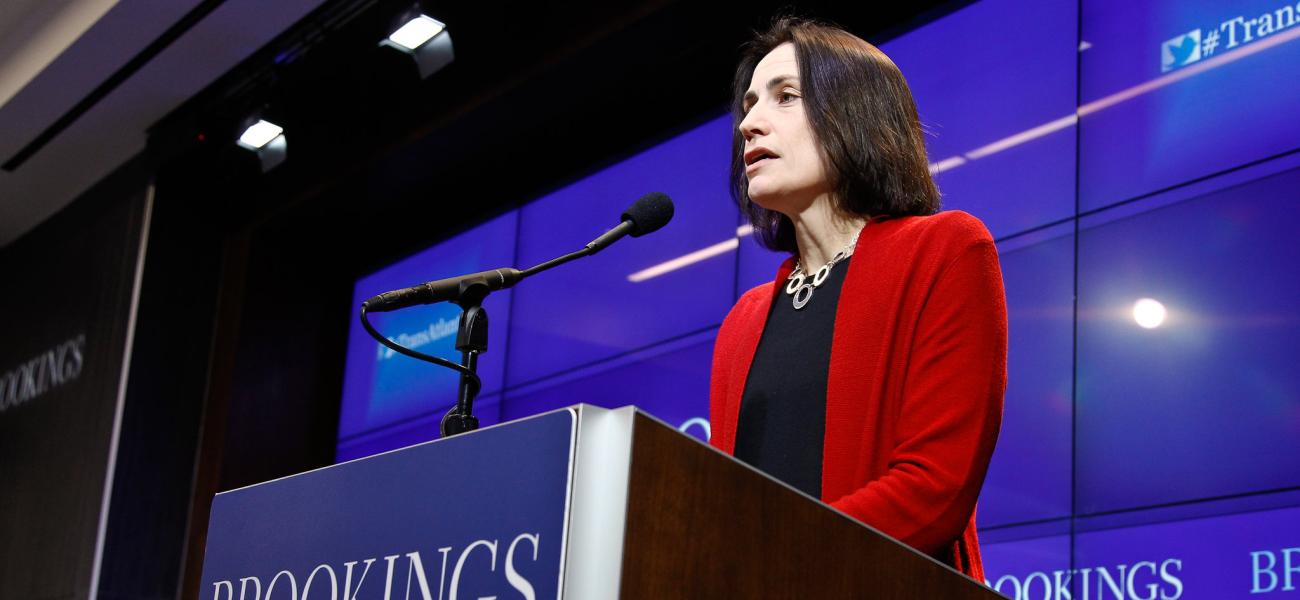
Fiona Hill to Politico: Yes, Putin Would Use Nukes
These are excerpts from an interview originally published by Politico with the headline: "'Yes, He Would': Fiona Hill on Putin and Nukes."
Since Russia's Feb. 24 invasion of Ukraine, experts have tried to analyze how likely it is that Vladimir Putin would opt to use Russia's nuclear weapons. In a Feb. 28 interview with Politico, Fiona Hill, a senior fellow at the Brookings Institution and former senior director for Europe and Russia on the U.S. National Security Council, laid out her perspective on this and on Putin's possible broader goals and motivations in Ukraine. She says:
- "Putin is usually more cynical and calculated than he came across in his most recent speeches. There’s evident visceral emotion in things that he said in the past few weeks justifying the war in Ukraine. The pretext is completely flimsy and almost nonsensical for anybody who’s not in the echo chamber or the bubble of propaganda in Russia itself."
- "[Putin's goal is] reestablishing Russian dominance of what Russia sees as the Russian 'Imperium.' I’m saying this very specifically because the lands of the Soviet Union didn’t cover all of the territories that were once part of the Russian Empire. ... He’s said, repeatedly, that Russian and European borders have changed many times. ... Putin’s view is that borders change, and so the borders of the old Russian imperium are still in play for Moscow to dominate now."
- "If there is serious resistance, he may not have sufficient force to take the country for a protracted period. It also may be that he doesn’t want to occupy the whole country, that he wants to break it up, maybe annex some parts of it, maybe leave some of it as rump statelets or a larger rump Ukraine somewhere, maybe around Lviv. I’m not saying that I know exactly what’s going on in his head. And he may even suggest other parts of Ukraine get absorbed by adjacent countries."
- "Basically, what President Putin has said quite explicitly in recent days is that if anybody interferes in Ukraine, they will be met with a response that they’ve 'never had in [their] history.' And he has put Russia’s nuclear forces on high alert. So he’s making it very clear that nuclear is on the table. ... The thing about Putin is, if he has an instrument, he wants to use it. Why have it if you can’t? ... So if anybody thinks that Putin wouldn’t use something that he’s got that is unusual and cruel, think again. Every time you think, 'No, he wouldn’t, would he?' Well, yes, he would. And he wants us to know that, of course. ... It’s not that we should be intimidated and scared. That’s exactly what he wants us to be. We have to prepare for those contingencies and figure out what is it that we’re going to do to head them off."
- "Sanctions are not going to be enough. You need to have a major international response, where governments decide on their own accord that they can’t do business with Russia for a period of time until this is resolved. ... So what we need is a suspension of business activity with Russia until Moscow ceases hostilities and withdraws its troops."
- "Ukraine has become the front line in a struggle, not just for which countries can or cannot be in NATO, or between democracies and autocracies, but in a struggle for maintaining a rules-based system in which the things that countries want are not taken by force. Every country in the world should be paying close attention to this. Yes, there may be countries like China and others who might think that this is permissible, but overall, most countries have benefited from the current international system in terms of trade and economic growth, from investment and an interdependent globalized world. This is pretty much the end of this. That’s what Russia has done."
Read the full interview with the magazine's senior editor Maura Reynolds on Politico's website.
The opinions expressed herein are solely those of the interviewee. Photo by Brookings Institution shared under a Creative Commons license.

